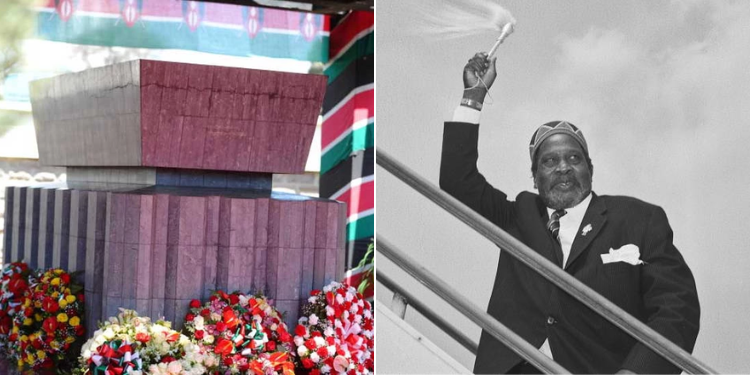The Ministry of Culture has paused a petition seeking the relocation of the remains of Kenya’s founding father, Mzee Jomo Kenyatta, from Parliament Grounds in Nairobi to his ancestral home in Gatundu, Kiambu County.
The petition, filed on July 26 by Kenyan citizen John Mweha, urged the government to initiate what he described as a dignified, consultative, and culturally sensitive process. Mweha argued that the Parliament precincts were not symbolically or constitutionally reserved for the executive and that the current burial site may not reflect traditional African values.
“This is a sincere, non-partisan appeal to the Government to relocate the remains of the late Mzee Jomo Kenyatta to his ancestral home, where cultural and family traditions can be better honored,” the petition read.
In a formal response, Culture Cabinet Secretary Hannah Wendot acknowledged the sincerity of the request but highlighted significant constitutional and legal complexities. She noted that while the petition referenced robust constitutional provisions, further scrutiny was necessary to assess its viability.
“The petition’s reliance on constitutional provisions is robust but requires deeper scrutiny to assess its legal viability. Consequently, a multi-phased approach combining cultural validation, family engagement, and legislative or judicial oversight is necessary,” the Ministry stated.
The government emphasized that any decision on the matter would require the direct involvement of the Kenyatta family, as well as consultations with cultural custodians, to ensure unity and compliance with the law.
The Kenyan Constitution does not specify where a deceased President should be buried, beyond the requirement that they receive a State funeral. Jomo Kenyatta, who died on August 22, 1978, after complications from a stroke, was interred at Parliament Buildings in a ceremony meant to symbolize national independence and honor his role as the first President.
Since his burial, the mausoleum has remained heavily guarded and is not open to the general public. In recent years, petitions have also been filed requesting that Kenyans be granted access to view the site, further fueling public debate on the legacy and memorialization of the founding President

